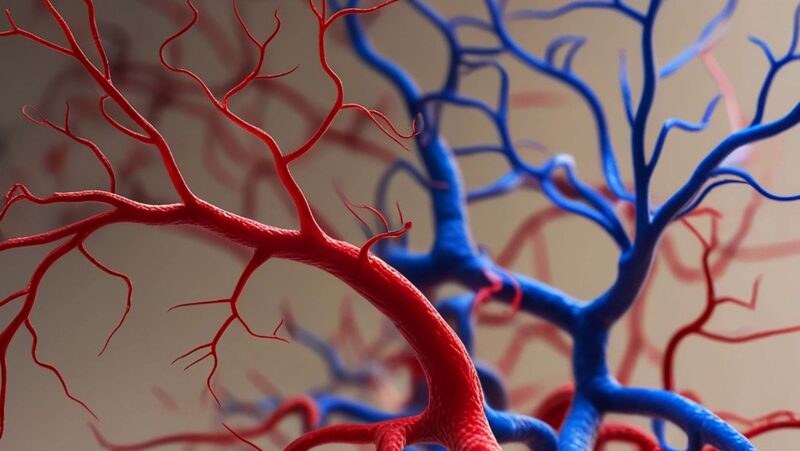
The rise of personalized medicine has been one of the most significant shifts in modern healthcare, moving away from one-size-fits-all solutions and toward treatments designed around the unique characteristics of each patient. Nowhere is this approach more valuable than in vein health, where conditions such as varicose veins, chronic venous insufficiency, and deep vein thrombosis affect individuals differently depending on their genetics, lifestyle, and overall medical history. By harnessing the power of data and innovative diagnostic tools, vascular specialists are able to craft treatment plans that go beyond general guidelines and instead address the specific needs of each patient. This transition not only improves clinical outcomes but also enhances patient confidence and satisfaction, as care becomes truly tailored to the individual.
The Evolution of Vein Care from General to Personalized Approaches
For decades, vein care followed a fairly standardized model. Patients presenting with vein-related symptoms were often given similar treatments, such as surgical vein stripping or compression therapy, regardless of the subtle differences in their cases. While these approaches provided relief, they failed to account for the wide variability in how venous diseases progress among different individuals. Advances in medical research have highlighted that vein conditions are influenced by a combination of hereditary factors, lifestyle habits such as prolonged standing or sitting, weight, and coexisting conditions like diabetes or cardiovascular disease. Personalized medicine leverages this knowledge, combining patient data with new technologies to create targeted treatment plans that address root causes while minimizing unnecessary interventions.
The Role of Data in Shaping Tailored Treatments
Data is the cornerstone of personalized vein health. Sophisticated diagnostic imaging, electronic health records, and genetic insights all provide a clearer picture of the patient’s unique condition. Tools such as duplex ultrasound allow physicians to examine the structure and function of veins in real time, identifying the precise location and severity of issues like reflux or blockages. By combining imaging results with patient history, lifestyle data, and sometimes genetic testing, specialists can predict how the condition might progress and recommend the most effective intervention. This approach ensures that patients are not overtreated with aggressive procedures when a less invasive option would suffice, or undertreated when more advanced care is required. The result is a more balanced, patient-centered form of vascular medicine.
Advancements in Minimally Invasive Procedures for Personalized Care
One of the most notable advancements in vein care has been the development of minimally invasive treatments that can be adapted to suit each patient’s condition. Procedures such as endovenous laser ablation, radiofrequency ablation, foam sclerotherapy, and microphlebectomy can now be selected and customized based on the patient’s anatomy, medical history, and lifestyle needs. For example, a patient with early-stage varicose veins might benefit most from sclerotherapy, while someone with more advanced venous reflux may require laser or radiofrequency treatment. These options provide flexibility, enabling specialists to match the treatment to the individual rather than forcing the patient to adapt to a standardized approach. Clinics like the Vein Clinic in Fort Myers have embraced this philosophy, offering a range of advanced procedures tailored to the unique needs of their patients.
Patient Engagement and Shared Decision-Making
Personalized medicine is not solely about the clinical tools or data used; it is also about involving patients more deeply in their care journey. When patients understand the specific factors driving their condition and how a treatment plan has been tailored to them, they are more likely to trust their providers and actively engage in their recovery. Shared decision-making, supported by visual diagnostic tools and clear communication, ensures that patients have a voice in choosing the best path forward. This collaborative process fosters stronger relationships between patients and providers while also improving compliance with treatment recommendations and long-term outcomes.
Preventive Care and Lifestyle Integration
Another powerful aspect of personalized medicine in vein health is its emphasis on prevention. Since data can reveal risk factors long before symptoms become severe, physicians are now better able to recommend preventive measures tailored to each individual. For some, this might mean lifestyle adjustments such as weight management, regular exercise, or compression therapy to improve circulation. For others with higher genetic predispositions, earlier interventions may be recommended to prevent progression. By integrating these personalized preventive strategies, vein specialists not only treat existing conditions but also reduce the likelihood of recurrence or complications, improving patients’ long-term quality of life.
Technology as the Bridge Between Data and Care
The growing role of technology in vein health has been essential in making personalized medicine possible. Artificial intelligence tools are being developed to analyze large datasets, identifying patterns that might otherwise go unnoticed. Wearable devices that monitor circulation, physical activity, and even sleep patterns are beginning to provide real-time data that informs treatment adjustments.
Patient portals and telemedicine platforms also ensure that information flows seamlessly between patients and providers, making personalized care more efficient and accessible. As technology continues to advance, its integration into vein health will only deepen the connection between data-driven insights and practical patient care.
The Broader Implications of Personalization in Vein Health
The success of personalized medicine in vein care provides a model for how other medical specialties can evolve. By showing that a tailored, data-driven approach leads to better outcomes, higher patient satisfaction, and more efficient use of healthcare resources, vein health demonstrates the transformative potential of personalization across the healthcare system. This is not simply about technological innovation but about redefining the relationship between patient and provider, ensuring that care is not just clinically effective but also individually meaningful.
Conclusion
Personalized medicine is changing the face of vein health, proving that data-driven, tailored treatments can dramatically improve both patient outcomes and experiences. By moving away from generalized approaches and instead focusing on the unique needs of each individual, vascular specialists are able to deliver care that is precise, effective, and empowering. Clinics like the Vein Clinic in Fort Myers exemplify this shift, combining advanced diagnostics, minimally invasive treatments, and patient-centered strategies to bring personalized medicine to life. As healthcare continues to embrace personalization, vein health will remain a leading example of how data can be transformed into care that truly makes a difference in people’s lives.











